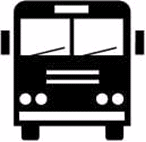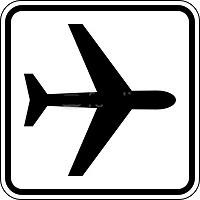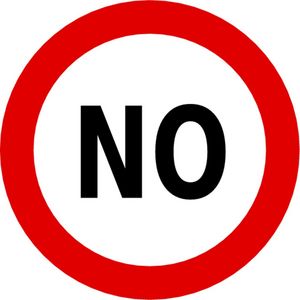CTA Loop-O'Hare Express
Funding, feasibility may slow mayor's high-speed project
Chicago Tribune, February 20, 2017, by Mary Wisniewski, Getting Around
Imagining an express train from downtown to O'Hare International Airport takes some suspension of disbelief.
It's not quite the effort needed to believe in elves, but enough to get over cynicism nurtured from years of living in Chicago.
Mayor Rahm Emanuel has set a three-year goal to start building high-speed service to the airport, though he has offered few details on how this would happen.
More than a decade ago, Mayor Richard M. Daley pictured the Block 37 shopping center on top of a high-speed rail station. The CTA and the city tossed more than $250 million into a hole in the ground before work stopped in 2008.
So can it really happen this time? Emanuel officials and some transportation experts say the city needs it more than ever in order to be competitive in the world travel market. Various options are being considered for the route and downtown terminal.
But it is not clear how this project would be funded, outside of as-yet-unknown private investors. It's also not known whether a high-fare, express-only train would be financially feasible, or if more stops would be needed to make it worthwhile.
“It's become a litmus test for being a world-class city,” said DePaul University transportation expert Joe Schwieterman of the need for the train. “There's huge traffic between downtown and O'Hare, so it's a logical step for our city but one that's been stalled for half a generation. The tricky part is who pays and how it's financed.”
The idea is to provide a high-speed train to connect downtown with O'Hare in 20 to 25 minutes — less time than either the Blue Line or a cab on the Kennedy Expressway. The concept is supposed to appeal to busy jet-setters who want a quick trip, do not want to ride the CTA and would be willing to pay $25 or more for the privilege. Similar express trains operate in Toronto, Hong Kong, London and Tokyo.
An industry source familiar with the planning said the project could cost $1 billion to $3 billion. The city insists that this time, the project will not be paid for by state or local tax dollars, though federal funding was not ruled out. The aviation department awarded $2 million, from passenger facility charges and federal sources, last February to engineering firm WSP Parsons Brinckerhoff to study options. Emanuel said engineers had made progress identifying routes.
The city recently hired Bob Rivkin, a former general counsel for the U.S. Department of Transportation, to provide legal expertise to find a way forward and work with potential partners. Rivkin, a Daley administration veteran who declined comment, has a contract for $25,000 per month, paid for through the aviation department.
Aviation Commissioner Ginger Evans has said the city would look for a private company to cover construction costs and operate the system.’
U.S. Rep. Mike Quigley, who represents the district that covers O'Hare, said he thought an express train is a fine idea, but he cannot see how it can get done without federal funding.
“I just don't think there's enough of a market right now to do entirely private sector,” said Quigley, a Democrat. He said there's “more uncertainty than certainty” under the new presidential administration about how infrastructure needs will be funded.
President Donald Trump campaigned on the idea of funding infrastructure through tax credits for private companies, though tax credits alone may not be enough of an incentive for investors to come in unless fare and/or other revenues can pay off capital costs. The express train idea might be one that appeals to the new Republican administration, since it would aid business and involve private investment, and Trump has expressed interest in high-speed trains.
Undercapitalized rail systems like Metra and the CTA are Quigley's main priorities, he said.
“I've got to focus on keeping the fleet going,” Quigley said.
Options for the train
Evans has ruled out as downtown terminals both the Block 37 station because of technical concerns raised by the CTA and other travel agencies, and Union Station because it is already too busy.
Other possible stations that could be used are Ogilvie, LaSalle and Millennium, all part of the Metra system, according to the industry source familiar with the planning. Possible route options would be to use property along part of the Union Pacific Northwest Line, or go over the top of the Kennedy Expressway. Another option is to use railroad property along I-290 and I-294, the source said.
Another version of this idea is to build tracks along the right-of-way next to the Metra North Central line to Rosemont, or using part of the Milwaukee West Line to River Grove and then picking up the North Central from there, Schwieterman said.
A choice touted by the Midwest High Speed Rail Association is to link Metra's North Central and electric routes, which could also connect to Millennium Park and Hyde Park.
“I think it's critical the city look at more than just an express train between downtown and Chicago,” said association Executive Director Rick Harnish. He imagines the “CrossRail” route even being able to take Amtrak trains coming from places like South Bend, Ind., with passengers connecting to O'Hare.
“The key is to build a very robust railroad that serves multiple markets and gets away from the focus on this very small market — the business traveler trying to get downtown,” Harnish said.
If the city built a high-speed express train, business travelers would use it, said Wayne Urbanek, president of the Chicago Business Travel Association. He said many of his constituents travel to London and appreciate the high-speed rail system to and from Heathrow, which operates every 15 minutes for a standard fare of about 25 pounds or about $31.
“The business traveler would pay for that,” said Urbanek, who noted that a cab ride can run $50, while the Blue Line has too many stops. “Time is money.”
The city also needs to examine how many people would use an express train, how they would use it, and if the service needs to serve more than one market to make it work.
Toronto offers a cautionary tale. The Canadian city, which has a similar population to Chicago, built an express train to its airport in 2015, but ran into a problem with the price. A standard one-way fare on the Union Pearson Express was initially $27.50($21 U.S.), or $19 ($14.50 U.S.) with a “Presto” card, similar to Ventra.
Ridership for the line was so bad at just about 2,000 riders a day that the price was cut in half last year to $9 ($6.87 U.S.) for Presto card riders and $12 ($19.16 U.S.) for those paying cash, said Anne Marie Aikins, spokeswoman for Metrolinx, which runs the service. The Express is now seeing 9,000 passengers a day, Aikins said. She noted that the service, which takes 25 minutes from downtown to the airport, also serves two other stops.
“It's a hybrid system,” Aikins said. She said to improve ridership, Metrolinx listened to the needs of people living near the other stops. Before the Express, transit riders took buses or cabs to the airport — Toronto did not have the equivalent of Chicago's Blue Line to O'Hare, or Orange Line to Midway.
The Chicago Metropolitan Agency for Planning, the regional planning organization for the seven-county region, has not listed an O'Hare express train as one of its highest priority projects in its “Go to 2040” plan. Projects listed ahead of an express train include the Red Line South extension and express toll lanes for I-55 and I-290.
The Active Transportation Alliance, which advocates for transit users, pedestrians and bicyclists, would support the express but only if it is privately financed, Government Relations Director Kyle Whitehead said. The Alliance would not want it to compete with public funding for projects that provide greater community benefits, like the Red Line extension.
“We think those are higher priorities,” Whitehead said.
The idea is to provide a high-speed train to connect downtown with O'Hare in 20 to 25 minutes.
The concept is supposed to appeal to airline passengers who would be willing to pay $25 or more for the privilege.
An industry source familiar with the planning said the project could cost $1 billion to $3 billion.
The city would look for a private company to cover construction costs and operate the system.
Related Articles



